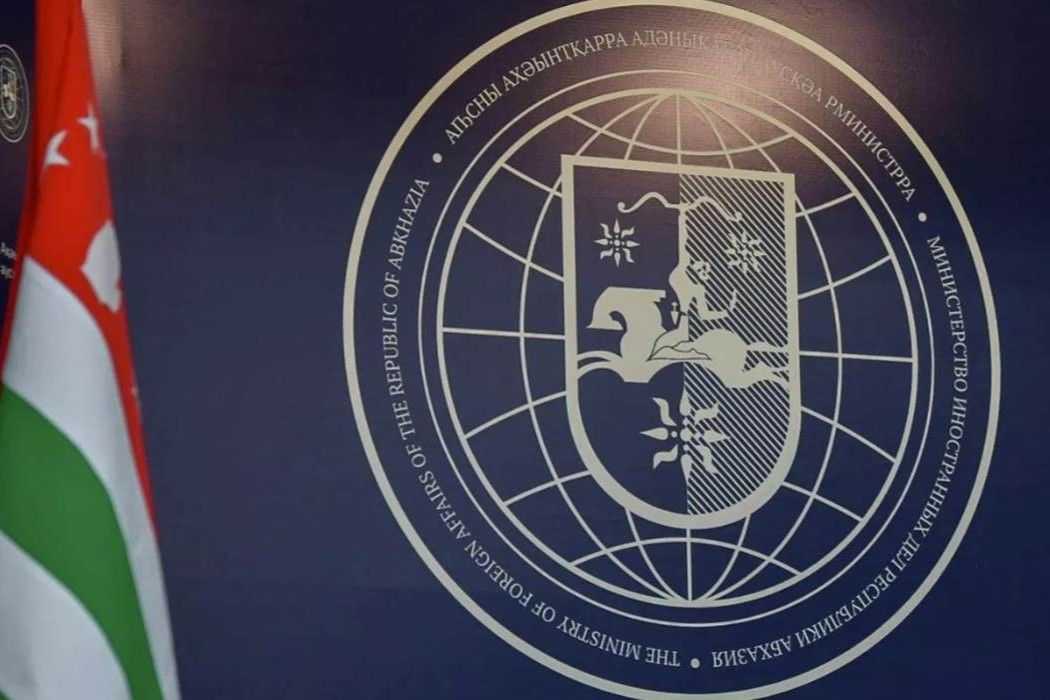

![]() Non-governmental organisations (NGOs) have a short but interesting history in Abkhazia. Over the past two decades, they have established themselves as a significant part of Abkhazian society. This is perhaps due, in large part, to the charitable works that they led in the difficult post-war years.
Non-governmental organisations (NGOs) have a short but interesting history in Abkhazia. Over the past two decades, they have established themselves as a significant part of Abkhazian society. This is perhaps due, in large part, to the charitable works that they led in the difficult post-war years.

A problem stemming from Abkhazia’s unrecognised status — that many external contacts were blocked at an official level — has strengthened their position. Representatives of Abkhazia’s NGOs have seized their limited opportunities to carve channels into the outside world and disseminated objective information about their country and the conflict with Georgia. Due largely, as well, to the assistance NGOs gave to the population and the government in solving urgent problems, their relationship with society and the authorities is a generally a constructive one. These important circumstances undoubtedly help resist the processes that have, in many of the countries surrounding Abkhazia, pushed NGOs out of the socio-political arena. Compared to many other post-Soviet regions, NGOs appeared in Abkhazia quite early. They were already taking their first steps back in the days of perestroika (the opening up of the Soviet Union), in pre-war Abkhazia. After the Georgian–Abkhazian war, new NGOs emerged in the now-independent Abkhazia. This was an exceedingly difficult period in Abkhazia’s recent history, when not a single country supported the Abkhazian people, who were suffering from serious humanitarian problems: poverty, a lack of medicine, a traumatised population, a huge amount of war-orphans, significant areas of land riddled with landmines, the constant threat of a renewal of military actions, crime, unemployment, socio-economic devastation, etc. The state lacked both the finances and the human resources to solve all these urgent problems.
In that period, international humanitarian organisations also provided the population with invaluable assistance. It was during this difficult time that some of the most well-known Abkhazian NGOs — the Centre for Humanitarian Programmes, the Fund of Civil Initiatives, and then the Association of Women of Abkhazia (AZhA), the Association of Invalids with Spinal Injuries (AIS), World Without Violence (part of the Zurab Achba Cultural Charitable Centre), the Sukhum Youth House (SYH), and others — emerged. In the post-war years, they made a concerted push not just to provide psychological and legal assistance to the war-torn population, but to defend, in international venues and political and civic forums, the rights of the Abkhazian people, presenting objective information about Abkhazia and the recently ended war. Abkhazian NGOs contributed to the formation of a more positive image of Abkhazia, helped to establish contacts useful for the country, and voiced the positions and needs of Abkhazia on an international level, unavailable within the parameters of the negotiation process, to official representatives of Abkhazia.
The problem with foreign aid in Abkhazia
Another complication for Abkhazian NGOs and their objectives was that the overwhelming majority of foreign aid organisations conducted their business within the parameters of their home countries’ politics, which unequivocally supported Georgia’s position and the principle of ‘Georgian territorial integrity’. Nevertheless, although they constituted an absolute minority, objective organisations were also interested in the region. These organisations — private foundations and NGOs — took a balanced position with regard to the conflict and provided unconditional aid to a war-torn Abkhazia, without making their help contingent on political concessions towards Georgia. It should be emphasised that it was those organisations who operated within the framework of a politically neutral approach that partnered with Abkhazian NGOs for many years to come. Unfortunately, few are aware of the very careful, selective politics leading Abkhazian NGOs have had to adopt around the establishment of partnerships with foreign organisations. It is due to the existence of aforementioned political undercurrents and of unacceptable formulations and terminologies used to describe certain activities, originating from American or European funds, that Abkhazian NGOs have boycotted some grant competitions, repeatedly refusing specific funding sources for their initiatives.
Working within Abkhazia wasn’t simple, either: the inertia of the Soviet system, the lack of democratic values, and the absence of a habit of political and civic participation, were all factors that had to be overcome. Despite these difficulties, a systematic campaign of education took place, and continues to this day, thanks to the strength of local NGOs’ efforts. These took the form of numerous educational programmes, conferences, round tables, as well as publications on human rights, democratisation, the legal system, and others. Many of the NGOs’ projects were met with irritation from the authorities and with incomprehension from society. This especially concerned their work around practical applications.
What follows is a highly incomplete list of initiatives against which NGO representatives had to withstand rather serious opposition to complete: the organisation of repairs to improve living conditions for prisoners; the creation of the voter’s league ‘For Fair Elections’ and the organisation of public monitoring of the presidential elections; a public campaign against gambling business, which culminated in a law banning it within the territory of Abkhazia; the abolition of double taxation for land in the Gal region; the organisation of official protection, during court hearings, for representatives of vulnerable groups within the population; appeals to law enforcement agencies and increases in public attention towards cases of domestic violence; the protection of historical monuments from destruction by ambitious and destructive business-projects, and much, much more.
Despite some anxieties caused by the critical attitude of NGOs towards problems in the government, the authorities have not resisted registering new NGOs, nor have they impeded NGOs’ legitimate day-to-day activities. Moreover, despite the difficulties that often arise in establishing working contacts with government officials, NGOs have resolved, and continue to resolve, many of their problems in cooperating with different ministries and other government representatives. Active NGOs have repeatedly received high praise from government sources in Abkhazia. Yet during moments of increased tensions between the government and NGOs, often tied to internal political conflicts around elections, states of emergency have been imposed several times, and government officials have on numerous occasions taken covert action against them. Still, they have never resorted to open warfare with the NGOs, which means that they have avoided getting bogged down in contention, allowing for them to collectively overcome critical moments and continue to cooperate for the benefit of society.
The Russian ‘foreign agent’ law
In recent times, problems have arisen for Abkhazian NGOs from the direction of Russia. Prior to official recognition of an independent Abkhazia, Russia paid little attention to the activities of Abkhazian NGOs, but after 2008, the situation changed significantly. The escalation of Russo-Western conflicts, exacerbated by events in Ukraine, had a serious effects on Russian domestic policy relating to the role of civil society and NGOs within the state. This concerned, particularly, the activities of NGOs financed from Western funds. These changes in Russia were reflected in the legislature with the adoption of a law on foreign agents. These changes also worsened relations with Abkhazian NGOs that partnered with European organisations. Certain Russian experts and journalists, without studying the Abkhazian context or understanding the essence of the work Abkhazian NGOs do, began a campaign — at first anonymously, and then in the open — to discredit Abkhazian NGOs that concerned themselves with questions of democratisation, civic education, Georgian-Abkhazian dialogue, and the de-isolation of Abkhazia. In the last two to three years, many publications of a highly critical nature have begun to appear on websites and in the press in Abkhazia. A few phrases from one such publication sufficiently illustrate this phenomenon: ‘… NGOs and NPOs… set before themselves the task of overthrowing the current ruling regime’; ‘Civil activism… — is the most effective form of pushing any society towards division… and mass demonstrations against the authorities. This is how Maidans are created…’; ‘In the case of Abkhazia, demilitarisation must begin with the adoption of a law… concerning foreign agents’.
And these accusations ring out at a time that Abkhazian NGOs — by creating conditions for dialogue, by maintaining equal access to the media for all legitimate political forces, by adhering unimpeachably to the Constitution during changes in government — have proven themselves to be consistent supporters of resolutions to domestic political crises.
It is impossible to understand — what benefit do these authors see in discrediting Abkhazian NGOs? It is, after all, the NGOs to whom representatives of the Russian-speaking population turn when their rights are violated. Sooner or later the realisation must set in that such publications, and the hurling of such slanderous accusations in the spirit of Stalin’s era, in no way serve the strengthening of Russo-Abkhazian relations. The staff of Abkhazian NGOs do not lose hope that politicians and experts deeply versed in the Abkhazian context will steer the situation back towards a more rational direction and stand against the spread of such biased information. The well-known political scientist and brilliant specialist on the Caucasus, Sergei Makedonov, for example, has remarked that the strength of Abkhazian NGOs is that they are politically oriented towards the interests of their country and perform many functions that are sometimes impossible at the state level.
Of course, civil activists who undervalue the importance of information distribution and public relations are also to blame for the prevalence of negative attitudes towards NGOs. They are too focused on their direct goals and do not spend enough effort and resources on thorough coverage of their initiatives and accomplishments. As a result, the information deficit is often filled with speculation and prejudice.
Positive initiatives
Thus far, this article has been concerned with the problems surrounding NGOs, but there are also many positive aspects to their initiatives. It is thanks to their persistent and systematic educational efforts that the very concept of civil society in Abkhazia is no longer met with hostility, as it was even 10–15 years ago. The adoption of several important laws can be counted among NGOs’ victories: laws like the Law on Mass Media, the Law on Gender Equality, and the Freedom of Information Law. Several important laws are also under discussion in Parliament (for example, a law concerning accessibility for people with disabilities). Many important amendments to other laws — like the Law on the Election of Deputies (in particular, the amendment regarding public observation), a law on the Judicial system, and on the Ombudsman — were also prepared with the active participation of NGOs.
Even with the existence of ambiguity and prejudice towards NGOs, Abkhazian society today calmly accepts the active role of civil society leaders in the country’s political life. Moreover, even the most implacable critics of non-governmental organisations often demand that NGOs publicly speak on this or that socially significant issue. Of course, NGOs lack the capacity, the professionals in a given field, and the media experts, to comment upon and evaluate all current events. Nevertheless, many NGOs manage to work productively in a variety of spheres. Thus NGOs investigate the needs of different sections of the population, identify and articulate them, lobby on behalf of the most urgent social issues, and become catalysts for the discussion of difficult and unpopular topics considered unprofitable from the perspective of both politicians and their parties. Many NGOs have won great respect in society for their many years of activism. This is underscored by the participation of leaders of the most active Abkhazian NGOs over many years in various spheres, in public debates, and in their inclusion in parliamentary commissions that prepare laws. Since day one of the founding of the Public Chamber, leaders of civil society have played an important role in this arena.
Of course, many important issues have not, as of yet, been effectively resolved — such as the defence of human rights, the implementation of civil control over state structures, the full inclusion of civic education in the school curriculum, and many more.
It can be said that Abkhazian NGOs, despite all the existing difficulties, have paved their own way towards development. They hold firmly to a position that bows neither to Western nor Russian stereotypes regarding NGOs, affirming that is it possible to be guided by the interests of one’s country and simultaneously promote democratic values in society: that one can consistently uphold the independence of Abkhazia and, at the same time, engage in dialogue with the opposite side in search of a stable peace — which matters not only for Abkhazia, but for the entire Caucasus.
The article is a translation of a partner post written by Arda Inal-ipa that first appeared on the website The Analyticon.
All place names and terminology used in this article are the words of the author alone, and may not necessarily reflect the views of OC Media’s editorial board.






